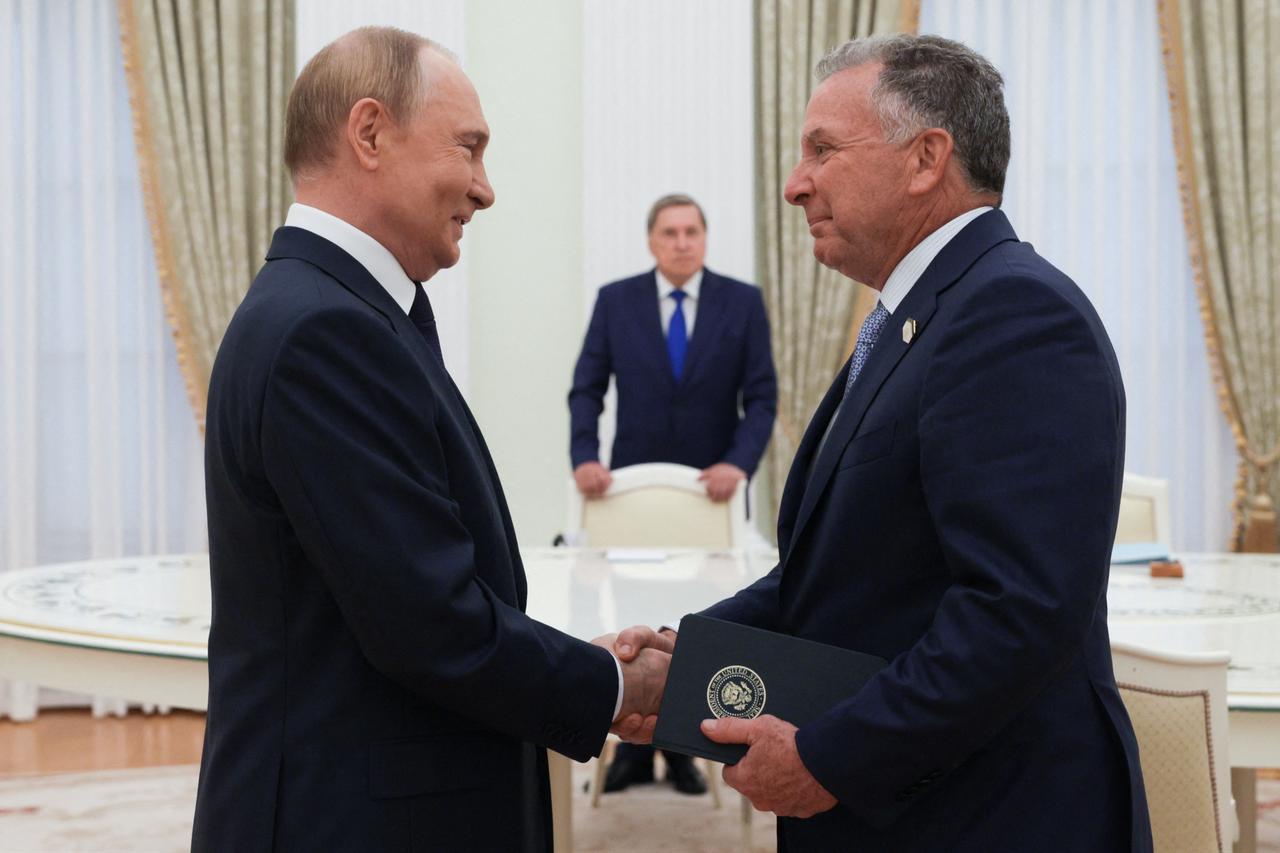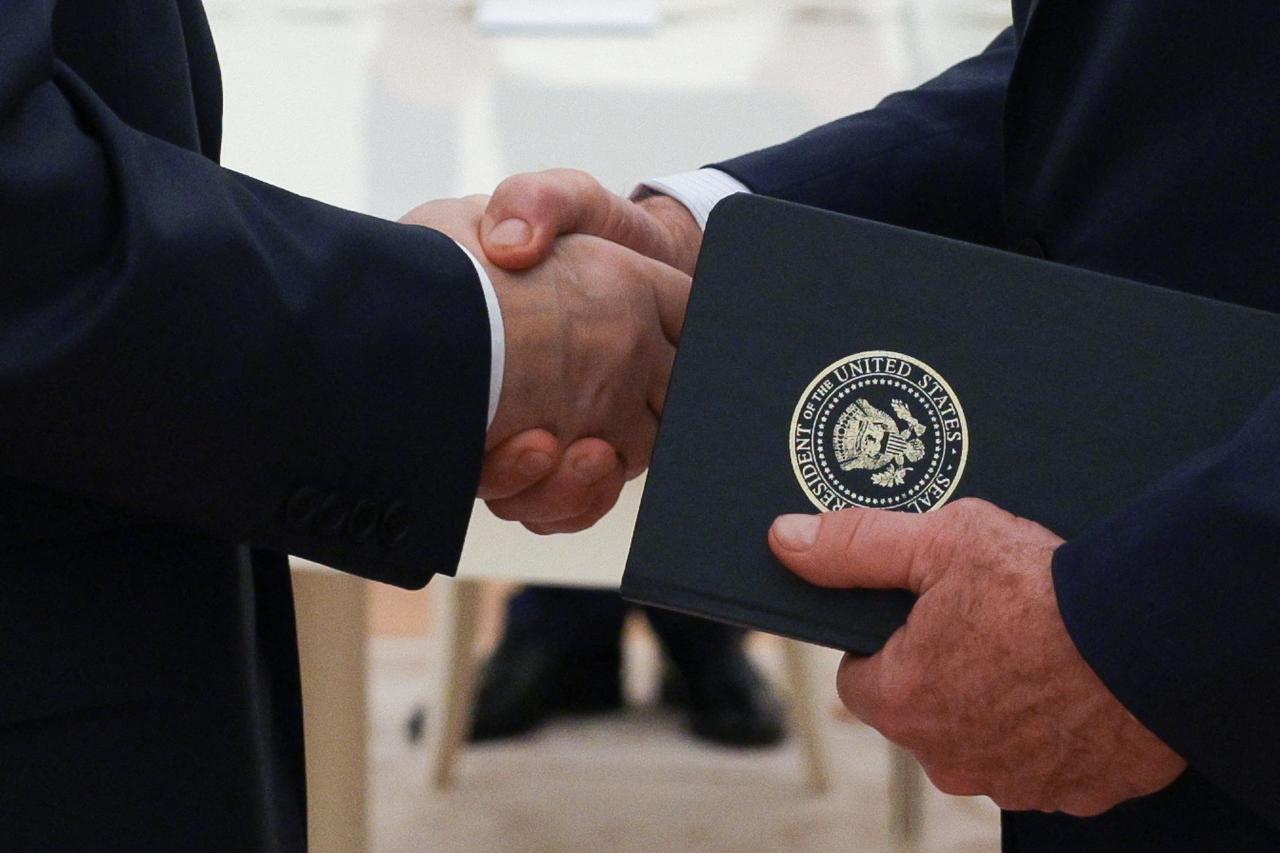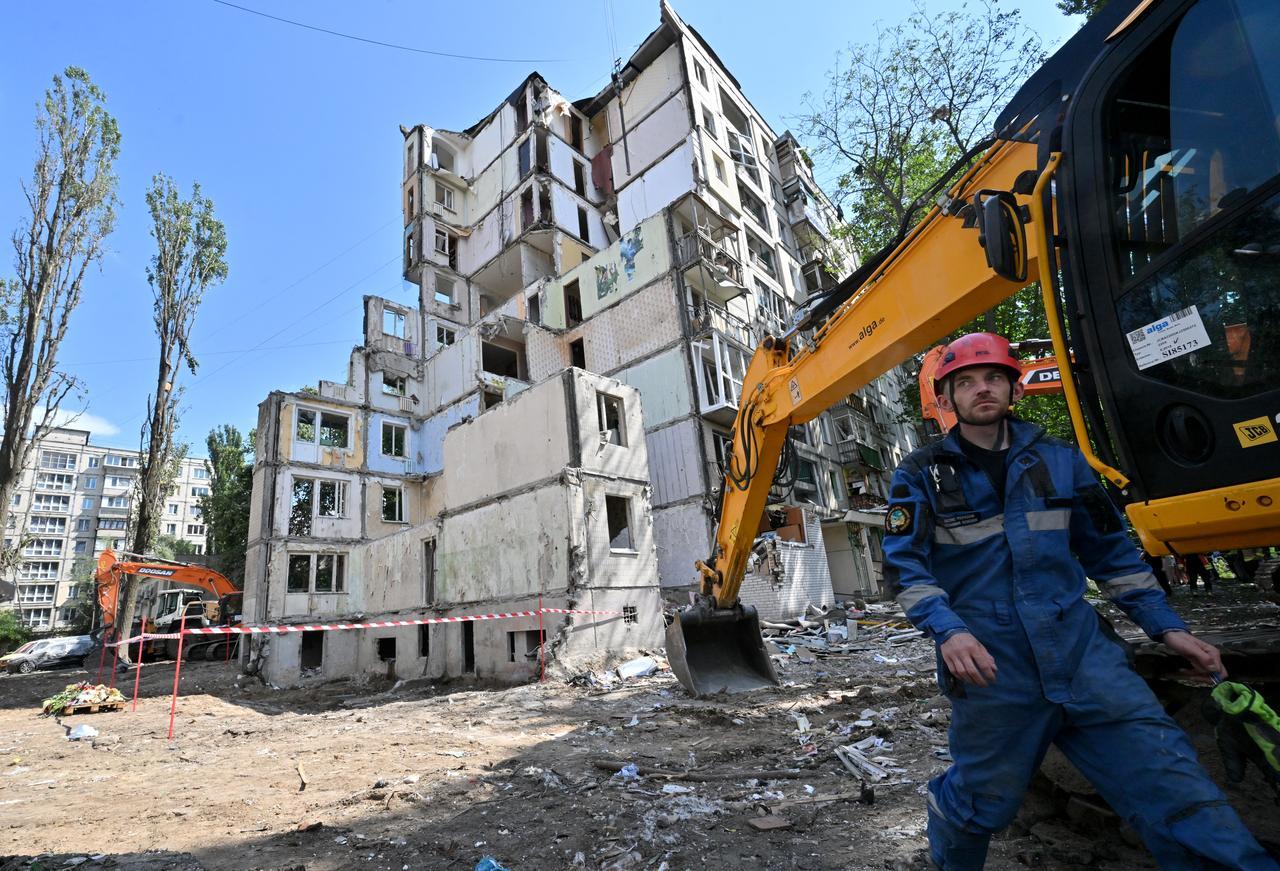
United States President Donald Trump on Wednesday praised talks between his envoy and Russian President Vladimir Putin on ending the war in Ukraine as “highly productive,” even as U.S. officials warned that sanctions on Russia’s trading partners would proceed if Moscow fails to show progress by Friday.
The Kremlin said Trump’s envoy, Steve Witkoff, held “constructive” discussions with Putin in Moscow, just two days before the deadline imposed by Trump. U.S. president, who has repeatedly claimed he could end the war within 24 hours of returning to office, said on Truth Social that “great progress was made” during the meeting.
Despite Trump’s optimism, a senior U.S. official told reporters that “secondary sanctions” were still expected to be implemented on Friday, targeting nations such as China and India for maintaining trade ties with Russia.
Yuri Ushakov, a senior aide to Putin, said the three-hour meeting with Witkoff featured the exchange of "signals" between both sides. He offered no further detail but described the conversation as “useful and constructive.”
The Kremlin later released video footage showing Putin shaking hands with Witkoff at the start of the meeting.
Ukrainian President Volodymyr Zelenskyy said he spoke with Trump following the meeting and noted that European leaders also joined the call. He did not specify which leaders were involved but thanked them for their support.

The White House has not formally outlined the sanctions it may impose, but Trump has repeatedly threatened secondary tariffs aimed at squeezing Russia’s trade networks.
On Wednesday, he ordered steeper tariffs on Indian goods in response to New Delhi’s continued purchases of Russian oil. U.S. officials said the move is intended to undermine Russia’s export capacity but acknowledged it could cause broad economic disruption.
“We’re going to see what happens,” Trump told reporters Tuesday. “We’ll make that determination at that time.”
The Kremlin condemned the threats, calling them “illegitimate” and warning that tariff hikes on Russia’s partners would further strain international ties.
The visit came two days before Trump's 10-day deadline for Russia to reach a cease-fire deal with Ukraine.
In June, U.S president gave Russia a 50-day window, after which he threatened to impose import duties of up to 100% on Russia and its trading partners unless Moscow and Kyiv reach a peace agreement.
On July 29, Trump said he decided to reduce that deadline to 10 days over his "disappointment" with Russian President Putin.

Meanwhile, Moscow has ramped up its military campaign, unleashing a record number of drone and missile strikes in July and advancing on the battlefield.
Ukrainian officials reported that Russian shelling of a holiday camp in southern Zaporizhzhia killed two people and wounded at least 12 on Wednesday.
Russia has demanded that Ukraine cede more territory and abandon Western support as conditions for peace, while Kyiv insists on an immediate cease-fire and international pressure to force regime change in Moscow.
“It is very important to strengthen all the levers in the arsenal of the United States, Europe, and the G7 so that a cease-fire truly comes into effect immediately,” Zelenskyy said following Witkoff’s arrival in Moscow.
Trump’s engagement with Moscow comes amid heightened nuclear rhetoric on both sides. Earlier this week, Trump said he had ordered two nuclear submarines into the region following a fiery online exchange with former Russian President Dmitry Medvedev.
While Trump did not specify whether the submarines were nuclear-armed or nuclear-powered—or where they were deployed—the statement drew a muted response from Moscow. Russian officials called for “caution” and later announced they would end a self-imposed moratorium on deploying intermediate-range nuclear-capable missiles.
They claimed the move was in response to alleged U.S. deployments of similar weapons near Russia’s borders.